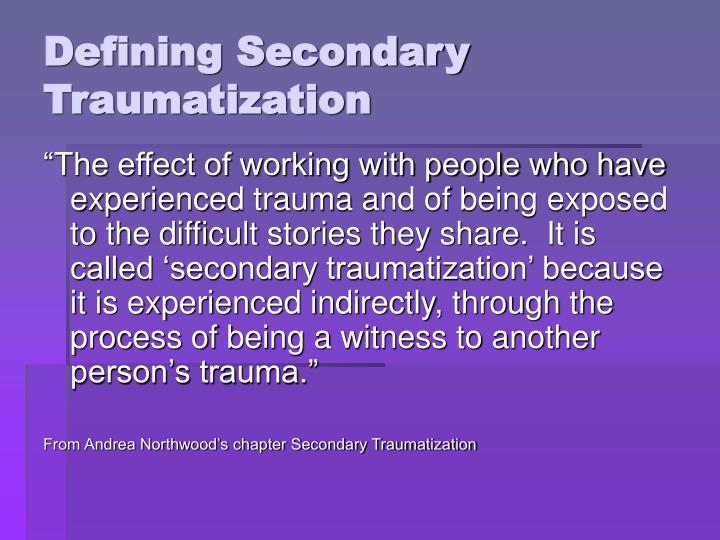
What is Secondary Trauma?ħ0% of adults experience at least some type of traumatic event in their life. With all the potential trauma an LGBTQ+ individual may experience during their life, the chance of developing secondary trauma from an LGBTQ+ loved one is all too possible. Other traumas that members of the LGBTQ+ community experience include bullying, rejection, societal stigma, harassment, physical or sexual abuse, intimate partner violence, grief, loss, and more.

Religion is also commonly used as a tool with which to bludgeon and berate LGBTQ+ individuals. Too many people lose family members and friends after coming out as their true, authentic selves. The range of life events they experience may contribute to a traumatic response, too. People in this community are likely to experience at least one hate crime during their lives.ĭirect ly acts of hate are only one cause of the traumatic things that LGBTQ+ individuals often experience. This event shined a haunting light on the very real fears that many LGBTQ+ individuals live with every day. The shooting at Pulse Nightclub in Orlando in 2016 sent waves of grief throughout the community and its allies. The secondary trauma that comes from absorbing the pain of your LGBTQ+ loved one is a valid concern. And though they’re the person who experienced the initial trauma, your secondary trauma is still important to address. If you have an LGBTQ+ loved one, your chances of experiencing secondary trauma increase. The trauma these individuals go through may leave a lasting impact as well as potentially trigger mental health concerns. Research shows that people who are part of the lesbian, gay, bisexual, and transgender community are significantly more likely to experience a traumatic event. This is especially true for those with an LGBTQ+ loved one. This is true for spouses, parents, and extended family members as well as educators, social workers, and other helping professionals. Holding space for a loved one who experienced a traumatic event also has its effects. Surviving a traumatic event directly leaves a lasting impact. Whether they understand the true impact that PTSD can have, they recognize that it’s oftentimes a debilitating condition.īut what about secondary trauma? Have you ever heard of secondary trauma before? It develops into a condition called post-traumatic stress disorder (PTSD), something that most people today are aware of. Rational Emotive Behavior Therapy (REBT)Įxperiencing a traumatic event is enough to leave anyone shaken but sometimes that shaken feeling sticks around.Psychiatric Medication Evaluation, Treatment, and Management.Eye Movement Desensitization and Reprocessing (EMDR).Exposure and Ritual Prevention (ExRP) Therapy.Dialectical Behavior Therapy (DBT) and Radically Open DBT (RO-DBT).Evidence-Based Treatment and Additional Therapies Menu Toggle.Residential Treatment Program (RTC) Menu Toggle.


 0 kommentar(er)
0 kommentar(er)
